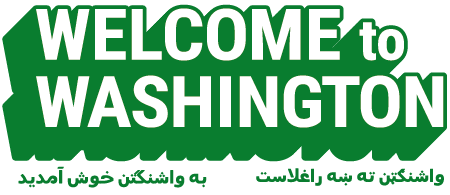Employment Resources
Unemployment Benefits
In order to maintain benefits, you must show evidence that you are in the active search for jobs. If offered a job, you must accept the offer.
Apply for unemployment benefits here: https://secure.esd.wa.gov/home
Employment and Training Resources
Employment Information Regarding Afghan Special Immigrant Visa Holders and Parolees https://www.justice.gov/crt/page/file/1445236/download
Upwardly Global: a nonprofit aimed to help immigrants and refugees restart their professional careers in the US https://www.upwardlyglobal.org/
ORIA Basic Food Employment and Training Program: Washington State’s SNAP employment and training program is known as the Basic Food Employment and Training (BFET) program. It provides job search, job search training (soft skills), educational services (adult basic education, English as a second language, and high school equivalency), workforce skills training (vocational education), assistance with establishing small businesses, post-employment services, and other employment opportunities to Basic Food recipients who are not participating in the state’s Temporary Assistance for Needy Families (TANF) program.
An individual is eligible to receive ORIA BFET services if they are:
- 16 years or older
- A federal food recipient
- A refugee or immigrant
- Not a U.S. citizen
- Not receiving refugee cash assistance (former RCA recipients are eligible for ORIA BFET)
ORIA Program Manager:
McKenzie Nassiri
Applicants can use the “See if I Qualify” tool on Washington Connection to check eligibility and apply for benefits.
Limited English Proficiency Pathway Program (SIV and Humanitarian Parolee)
The Limited English Proficiency Pathway (LEP) program helps refugees and parents receiving Temporary Assistance for Needy Families benefits to become employed.
Services include, but are not limited to:
- Job Preparation – workshops on how to look for a job, resume writing, interviewing skills, employer expectation, and using the Internet to search for work.
- Skills Training – training to gain or improve work skills in a specific industry.
- Community Service Activities – unpaid work with a nonprofit organization that benefits the community.
- Work Experience Activities – unpaid opportunities to practice work skills and gain work experience onsite with a nonprofit organization.
- English as-a-Second-Language (ESL) Training – classroom instructional setting to increase literacy skills in reading, listening, speaking, and writing.
- Transportation Support Services – provides assistance to help non-TANF refugee participants address transportation needs to participate in LEP Pathway activities. TANF recipients receive support services through their local DSHS Offices.
ORIA LEP Pathway – Employment Program Manager: Artur Arakelyan, email: artur.arakelyan@dshs.wa.gov
ORIA LEP Pathway – ESL Program Manager: Ashley Mai, email: ashley.mai@dshs.wa.gov
Promoting Refugee Integration, Mobility and Empowerment (PRIME) Program
PRIME Services: Case Management, Self Sufficiency Education Workshop, and Immigration.
PRIME stands for Promoting Refugee Integration, Mobility and Empowerment. PRIME provides refugees a continuum of services that are community based, comprehensive and client centered. The services promote refugees’ integration into their new communities, and increase their mobility through coaching on how to independently navigate community systems and resources. Refugees use the knowledge gained to empower themselves and regain control over their lives as they fulfill their dreams or goals.
PRIME services are available to refugees who are at least 16 years old, and who have resided in the U.S. for five (5) years or less. The services, which are provided by service providers throughout the state, include comprehensive Case Management Services, Self- Sufficiency Education Workshops, and Immigration Assistance. In addition, PRIME provides auxiliary services including an asylee outreach program; a civic engagement project; and a mental health support program for those contending with difficulty adjusting in the U.S. and/or residual trauma due to persecution in their home country.
